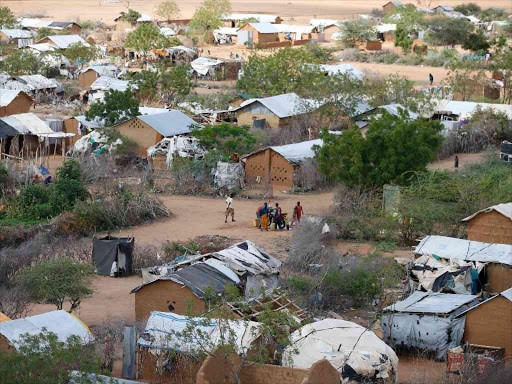
by CYRUS OMBATI
Friday March 17, 2023

Ifo 2 refugee camp in Dadaab, Garissa, on November 23, 2016.
Image: JACK OWUOR
A refugee has been killed at Ifo camp in Garissa county.
Police identified the deceased as 62-year-old Mahat Mohamed.
Mahat was reportedly attacked by a fellow refugee who was known to him on March 10.
The motive for the attack, which took place at Block A1, has not been established.
Mahat died at a local hospital four days later, police said.
The suspect fled the scene and police are looking for him.
The camp hosts more than 50,000 refugees, some of whom are being reintegrated and repatriated to countries that agree to take them in.
Kenya, under President Uhuru Kenyatta, had been pushing for the closure of the Dadaab camps, citing terror concerns.
But the new administration said the plans are off the table.
There are about 600,000 refugees living in Kenya with 300,000 in Dadaab and the rest in Kakuma.
Refugees from Somalia make up the largest group at more than 300,000 compared to those from South Sudan, the Democratic Republic of Congo, Ethiopia, Rwanda and Uganda.
The government plans to integrate some of them into local communities.
Last month, Immigration and Citizen Servics PS Julius Bitok said refugees deserve to lead dignified lives away from camps where access to basic needs and services is limited.
“The issue of refugees requires a lot of caution. We are moving away from that hostile approach and soon, those willing to remain in Kenya will be reintegrated into communities,” he said.
The integration of refugees is contained in a Marshall Plan that is in the final stages of completion.
According to the PS, voluntary expatriation will be allowed for refugees keen to return to their motherland or move elsewhere.
Bitok said proper profiling of the refugees will be carried out to weed out those who might pose security threats.
By settling them among communities, the refugees will be able to access employment opportunities and earn citizenship, he said.
Bitok said up to 90,000 are currently in urban areas working in various sectors.
Edited by Josephine M. Mayuya